HAFNIUM TRIFLUOROMETHANESULFONATE
Synonym(s):Hafnium(IV) triflate;Hf(OTf)4
- CAS NO.:161337-67-3
- Empirical Formula: CHF3HfO3S
- Molecular Weight: 328.56
- MDL number: MFCD01321255
- SAFETY DATA SHEET (SDS)
- Update Date: 2023-04-23 13:52:06
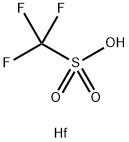
What is HAFNIUM TRIFLUOROMETHANESULFONATE?
The Uses of HAFNIUM TRIFLUOROMETHANESULFONATE
Hafnium trifluoromethanesulfonate is a recyclable catalyst for the mononitration of o-nitrotoluene. It serves as a catalyst for homogeneous methoxycarbonylation and hydrocarboxylation reactions of phenylacetylene. It is also used as a reactant for direct Friedel-Crafts reactions of chromene hemiacetals, aminomethylation reactions under Lewis acidic conditions and prins-type cyclization reactions. It is also involved in the direct polycondensation of lactic acid. Further, it is used in cationic benzylation reactions, chemoselective thioacetalization and transthioacetalization of carbonyl compounds.
The Uses of HAFNIUM TRIFLUOROMETHANESULFONATE
Catalyst for:
- Homogeneous methoxycarbonylation and hydrocarboxylation reactions of phenylacetylene
- Direct Friedel-Crafts reactions of chromene hemiacetals
- Aminomethylation reactions under Lewis acidic conditions
- Prins-type cyclization reactions
- Direct polycondensation of lactic acid
- Cationic benzylation reactions
- Chemoselective thioacetalization and transthioacetalization of carbonyl compounds
What are the applications of Application
Hafnium(IV) trifluoromethanesulfonate hydrate is a recyclable catalyst o-nitrotoluene
Properties of HAFNIUM TRIFLUOROMETHANESULFONATE
| Melting point: | >350 °C(lit.) |
| Flash point: | None |
| solubility | Soluble in methyl cyanide, dicholomethane, dichloroethane, nitromethane, dioxane, terahydrofuran and toluene. |
| form | powder to crystal |
| color | White to Light yellow |
| Sensitive | Hygroscopic |
| Exposure limits | ACGIH: TWA 0.5 mg/m3 NIOSH: IDLH 50 mg/m3; TWA 0.5 mg/m3 |
| CAS DataBase Reference | 161337-67-3(CAS DataBase Reference) |
Safety information for HAFNIUM TRIFLUOROMETHANESULFONATE
| Signal word | Warning |
| Pictogram(s) |
 Exclamation Mark Irritant GHS07 |
| GHS Hazard Statements |
H315:Skin corrosion/irritation H319:Serious eye damage/eye irritation H335:Specific target organ toxicity, single exposure;Respiratory tract irritation |
| Precautionary Statement Codes |
P261:Avoid breathing dust/fume/gas/mist/vapours/spray. P264:Wash hands thoroughly after handling. P264:Wash skin thouroughly after handling. P271:Use only outdoors or in a well-ventilated area. P280:Wear protective gloves/protective clothing/eye protection/face protection. P302+P352:IF ON SKIN: wash with plenty of soap and water. P305+P351+P338:IF IN EYES: Rinse cautiously with water for several minutes. Remove contact lenses, if present and easy to do. Continuerinsing. |
Computed Descriptors for HAFNIUM TRIFLUOROMETHANESULFONATE
New Products
4-AMINO-TETRAHYDRO-PYRAN-4-CARBOXYLIC ACID HCL 4-(Dimethylamino)tetrahydro-2H-pyran-4-carbonitrile 4-Aminotetrahydropyran-4-carbonitrile Hydrochloride (R)-3-Aminobutanenitrile Hydrochloride 3-((Dimethylamino)methyl)-5-methylhexan-2-one oxalate 1,4-Dioxa-8-azaspiro[4.5]decane 5-Bromo-2-nitropyridine Nimesulide BP Aceclofenac IP/BP/EP Diclofenac Sodium IP/BP/EP/USP Mefenamic Acid IP/BP/EP/USP Ornidazole IP Diclofenac Potassium THOMAIND PAPER PH 2.0 TO 4.5 1 BOX BUFFER CAPSULE PH 9.2 - 10 CAP SODIUM CHLORIDE 0.1N CVS ALLOXAN MONOHYDRATE 98% PLATINUM 0.5% ON 3 MM ALUMINA PELLETS (TYPE 73) LITHIUM AAS SOLUTION 2-Bromo-1-(bromomethyl)-3-chloro-5-nitrobenzene 2-Bromo-3-nitroaniline N-(3-Hydroxypropyl)-N-methylacetamide 3-Bromo-6-chloropyridazine 4-ethyl-3-nitrobenzoic acidRelated products of tetrahydrofuran



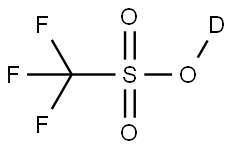

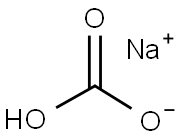
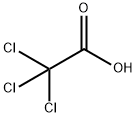

You may like
-
 Hafnium(IV) Trifluoromethanesulfonate CAS 161337-67-3View Details
Hafnium(IV) Trifluoromethanesulfonate CAS 161337-67-3View Details
161337-67-3 -
 Hafnium trifluoromethanesulfonate CAS 161337-67-3View Details
Hafnium trifluoromethanesulfonate CAS 161337-67-3View Details
161337-67-3 -
 1823368-42-8 98%View Details
1823368-42-8 98%View Details
1823368-42-8 -
 2-(3-(tert-butyl)phenoxy)-2-methylpropanoic acid 1307449-08-6 98%View Details
2-(3-(tert-butyl)phenoxy)-2-methylpropanoic acid 1307449-08-6 98%View Details
1307449-08-6 -
 Ethyl 3-(furan-2-yl)-3-hydroxypropanoate 25408-95-1 98%View Details
Ethyl 3-(furan-2-yl)-3-hydroxypropanoate 25408-95-1 98%View Details
25408-95-1 -
 2-Chloro-5-fluoro-1-methoxy-3-methylbenzene 98%View Details
2-Chloro-5-fluoro-1-methoxy-3-methylbenzene 98%View Details
1805639-70-6 -
 1784294-80-9 98%View Details
1784294-80-9 98%View Details
1784294-80-9 -
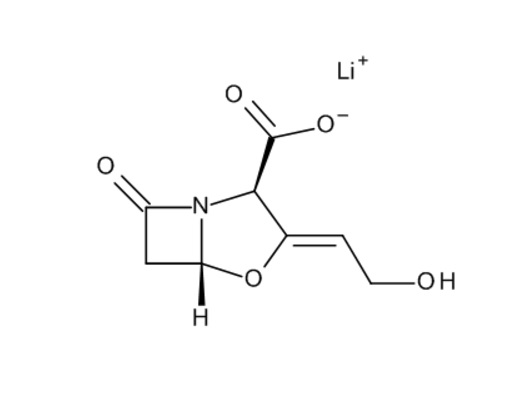 Lithium ClavulanateView Details
Lithium ClavulanateView Details
61177-44-4
Statement: All products displayed on this website are only used for non medical purposes such as industrial applications or scientific research, and cannot be used for clinical diagnosis or treatment of humans or animals. They are not medicinal or edible.